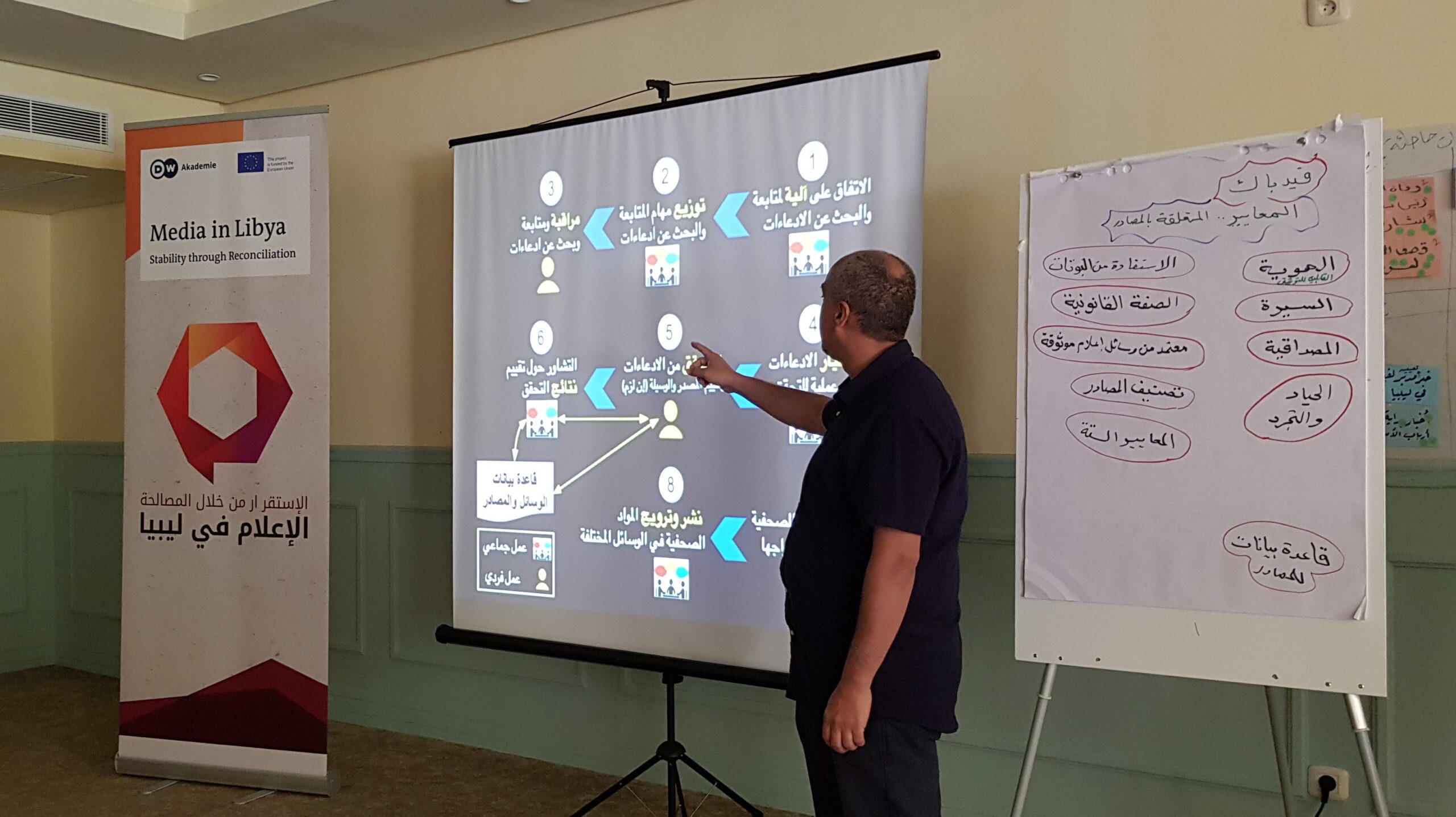Validity, trustworthiness and credibility
In October 2019, Deutsche Welle Akademie Project funded by the European Union ”Media in Libya – Stability Through Reconciliation“ started an ambitious program to help Libyan journalists become more competent in identifying disinformation, verifying claims and assessing the credibility of sources and media. The project’s goal was to reduce tensions and promote a more peaceful environment in Libya by reducing the quantity and impact of hoaxes, rumors and propaganda that thrived in the last few years because of the conflict. The emergence of Coronavirus (COVID-19) meant that fact checkers’ role would become even more relevant since the pandemic has resulted in the proliferation of thousands of additional waves of disinformation.
As we mark over six months since the first training took place, we reflect on the experience we had and share some positive highlights on the impacts that we are seeing today. Firstly, some trainees have indicated that the training marked a turning point in their professional careers, not only in terms of the new competences and skills they acquired but in their own understanding of the importance of media literacy and interest in the world of fact checking. They generally attributed this to the fact that the training was not purely technical in nature but used a multifaceted approach to ensure that trainees get motivated and realize the positive impact they could have on Libya if they put their skills into good use.
Trainees acquired key technical skills such as reverse image searching using tools such as TinEye to identify when an image was first published online or identifying the registrant of a website through ICANN’s WHOIS service. Yet equally important was the fact that trainees learned how to develop a more critical and skeptical perspective and challenge themselves to prevent their biases and beliefs to distort their judgement of what they read online. This allowed them to have the confidence of questioning sources that do not provide sufficient evidence to support their claims, which is something they did not often do in the past.
When talking about results, one should not overlook the impact such projects have on individual trainees in addition to the impact overall in the country. Many trainees found that the clear criteria provided in the course helped them do digital research more methodologically and systematically. This allowed them to have more confidence in their assessment of the validity of claims, the trustworthiness of sources and the credibility of media. In other words, the training succeeded in linking different pieces of the fact checking jigsaw puzzle to form a more complete picture of how to do proper verification that would be sustainable in the long run.
What was particularly impressive through this journey was the realization by trainees that although they may come from different backgrounds and affiliations, they shared the fundamental desire to seek the truth by methodologically and objectively examine claims regardless of the source. In this digital age, there are different ways of cross-validating statements using various digital tools that reduce the impact of personal perspectives and biases.
An illuminating result of the training was the collaboration that emerged among trainees after the course was over. They faithfully followed the systematic methods and approaches to fact check various claims and complement each other in a spirit of teamwork.
When we recently searched for fact checking efforts on social media in Libya, we discovered many Facebook pages have sprung up, of which many are focused on confronting disinformation related to COVID-19. It’s still too early to know which ones would succeed and which would not. The fact that journalists are no longer accepting being fed with disinformation and are working hard to correct sources is a positive and promising indicator of a shift in mindset and greater awareness of the need to bring journalism back to its principles.
In DW Akademie, we are proud to have played a role in making this happen and urge the Libyan journalists who benefited from the course to leverage what they learned and share their knowledge with others to create a lasting impact in the benefit of the society at large.
Author: Dr. Walid Al-Saqaf

